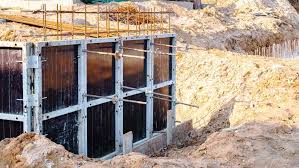Ago . 25, 2024 08:45 Back to list
Innovative Solutions for Concrete Formwork Production and Manufacturing Techniques
The Importance of Formwork for Concrete Manufacturers
Formwork plays a critical role in the construction industry, serving as a temporary mold that shapes concrete until it hardens. As a fundamental component for concrete manufacturers, formwork not only aids in creating desired structural forms but also significantly impacts the overall efficiency, safety, and quality of construction projects.
Types of Formwork
There are several types of formwork used by concrete manufacturers, each with its advantages and specific applications. The most common types include traditional timber formwork, steel formwork, aluminum formwork, and modular formwork systems.
- Timber Formwork This is one of the oldest types of formwork and is still widely used due to its versatility and cost-effectiveness. However, it can be labor-intensive and has a shorter lifespan compared to metal options.
- Steel Formwork Known for its durability and reusability, steel formwork is an ideal choice for large-scale projects
. It can withstand higher pressure and is less prone to deformation, ensuring a smoother finish on the concrete surface.- Aluminum Formwork This lightweight option is easy to handle and install, making it suitable for projects with tight schedules. Its robust design can also provide a high degree of accuracy, which is essential for pre-fabricated components.
- Modular Formwork Systems These systems provide flexibility and are designed for quick assembly and disassembly. They are often used in high-rise buildings and complex structures where time and precision are critical.
formwork for concrete manufacturer

Benefits of Efficient Formwork Design
The design and implementation of formwork are essential for achieving the desired results in concrete construction. An efficient formwork system minimizes waste, reduces labor costs, and ensures that the concrete can be poured safely and accurately. It is crucial for manufacturers to select the appropriate formwork material and design based on factors such as the type of structure, environmental conditions, and project requirements.
One significant benefit of modern formwork technologies is their ability to enhance safety on construction sites. Well-designed formwork systems can prevent accidents related to collapses or failures during the pouring process, thereby protecting workers and ensuring compliance with safety regulations.
Quality Control and Maintenance
For concrete manufacturers, consistent quality control is paramount. This includes regular inspection and maintenance of formwork. Proper upkeep not only extends the lifespan of the formwork but also ensures that the final concrete product meets the required standards. By identifying and rectifying issues such as wear and tear or misalignment early, manufacturers can avoid costly repairs and rework down the line.
Conclusion
In conclusion, formwork is an indispensable element for concrete manufacturers. Its various types offer flexibility and adaptability to meet different project needs, while effective design and maintenance contribute to improved safety, quality, and efficiency. As construction demands evolve, investing in advanced formwork technologies will continue to play a vital role in driving the success of concrete manufacturing and overall construction practices. Embracing innovation in formwork systems will pave the way for a safer and more efficient future in the construction industry.
-
Premium Scaffolding Jacks: Stable, Adjustable & Durable
NewsAug.25,2025
-
OEM Wall Formwork & Shuttering: Flexible & Curved Solutions
NewsAug.24,2025
-
Adjustable Heavy Duty Props for Slab Formwork | Strong & Reliable Support
NewsAug.23,2025
-
Adjustable Heavy Duty Props for Slab Formwork - Strong & Safe Support
NewsAug.22,2025
-
Formwork Spring Clamp Factories: Quality & Bulk Supply
NewsAug.21,2025
-
Premium Ringlock Scaffolding | China Manufacturer & Supplier
NewsAug.19,2025